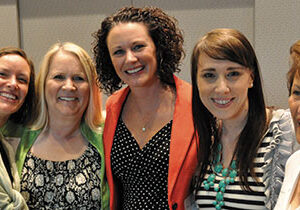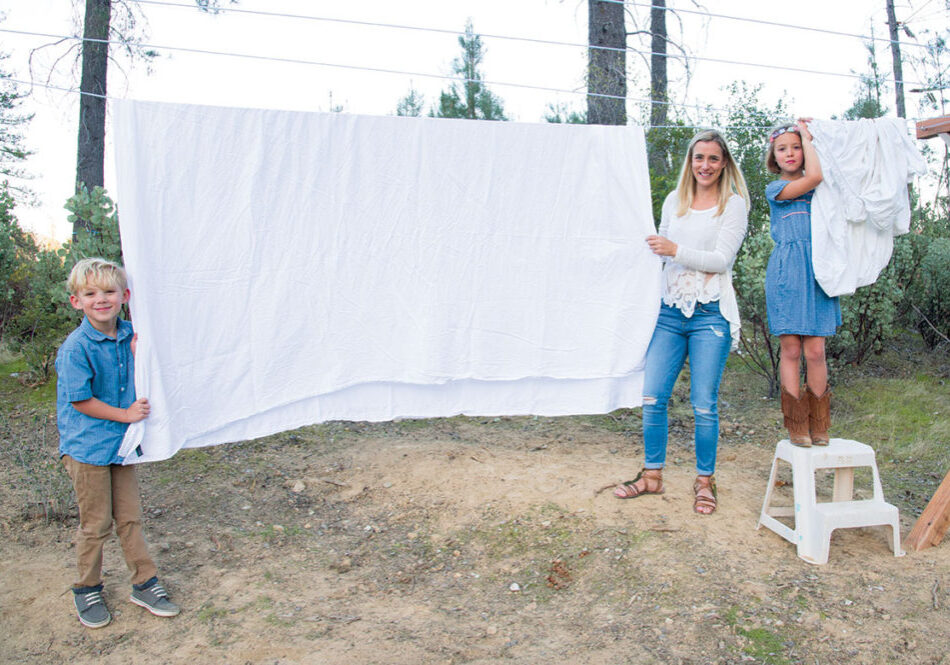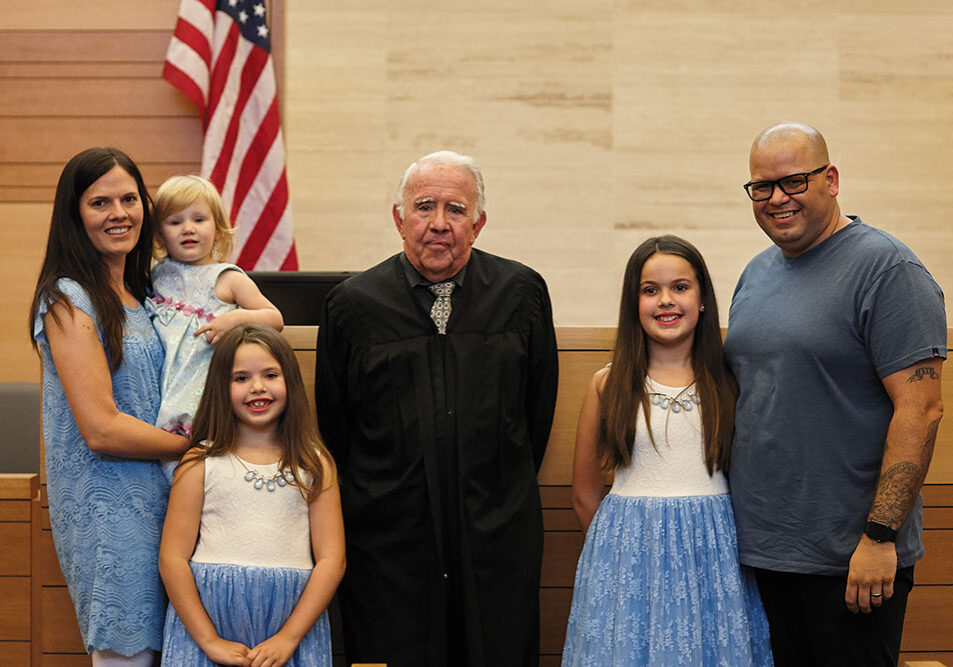I’ll never forget the acquaintance with older children who advised me — pregnant with my first child — to take care of my marriage during the first few years of parenthood. “When our children were young, we lived on a cul-de-sac with three other families,” he told me. “Before our children turned five, all three of those couples were getting divorced.”
I smiled at him, clueless about the impact of parenthood on marriage, which, as he predicted, did become much harder after we added two daughters to our family roster. Thankfully, one of the first parenting books I ever received, Raising an Emotionally Intelligent Child, was written by John Gottman, Ph.D. Soon I learned that this professor, beyond offering advice on how to teach children to master their emotions, had revolutionized the study of marriage.
Dr. Gottman shares his expert advice on better sex, stronger romance and lasting love
While researching his bestseller, Bringing Baby Home, Gottman found that two-thirds of the couples interviewed said their relationship suffered after welcoming a child. “When the baby arrives, there’s a big drop in couple satisfaction and relationship happiness,” he says. “The good news is that we’ve found this drop is totally reversible,”
Gottman offers practical advice in all of his work but may be best-known for the two-day marriage retreat offered by The Gottman Institute, which he co-founded with his wife, clinical psychologist Julie Schwartz Gottman, Ph.D. “Eighty percent of couples who attend [the retreat] reverse that drop,” says Gottman.
Gottman says the greatest gift parents can give their family is a loving marriage. I spoke with Gottman about how parenting has changed since he started researching marriage, couples and parent-child relationships four decades ago, along with well-researched advice on how to make a marriage thrive.
How has parenting changed since you started researching marital relationships?
The two-career family is ubiquitous — it characterizes 80% of all families, according to the American Psychological Association. The stresses that befall most families have increased because parents are now far less available, timewise.
A Sloan Center at UCLA study of dual career families shows moms and dads are in same room during the evening only 10% of the time. The average amount they talk to one another is 35 minutes a week and it’s mostly errand talk. Sex, romance, play, adventure and fun die with dual-career families. Life becomes the infinite to-do list.
Let’s contrast this with what’s called the normal bar: Everywhere on the planet, couples who have a great sex life do the same set of about 13 things. American dual-career couples are not doing these things. We are really ruining our relationships by not paying attention to them.

What are those 13 things?
The thing that blew my mind about this list that I put together is that it’s not rocket science. So I made it a part of my therapy and I tell people, ‘Hey, guess what science has found about sex and romance all over the planet?’ The list comes partly from our research and partly from the book The Normal Bar, which looks at the largest formal study of sex and love that includes more than 70,000 people from 74 countries.
Here’s the baker’s dozen habits of couples who have a great sex life:
- They say “I love you” every day and mean it.
- They kiss one another passionately for no reason at all.
- They give one another surprise romantic gifts and they give compliments.
- They know what turns their partners on and off erotically.
- They are physically affectionate even in public.
- They keep playing and having fun together.
- They cuddle. Often.
- They make sex a priority, not the last item of a long to-do list.
- They stay good friends.
- They can talk comfortably about their sex life.
- They have weekly romantic dates.
- They take romantic vacations.
- They are mindful about turning toward each other.
Do we kiss passionately in front of the kids, even if they say “Yuck! Gross”?
Ignore the kids that say “Yuck! Gross!” They actually love it, especially little kids. It gives them a feeling of security. Kissing is so powerful that research found German men who kiss their wives goodbye live five years longer than men who don’t. Kissing is the real secret to continued romance and passion. Check out the book The Science of Kissing.
How do you co-parent with someone when you aren’t (and may never be) on the same page about parenting?
There’s an easy answer to this question: This is an example of a deal-breaker conflict, which means there’s deep meaning underneath it. Every person’s position here has existential meaning. It’s not about deciding between a Honda and a Toyota while car shopping. These conflicts require something else. Here I use my dreams within conflict exercise. That means parents take turns to speak and to listen. The listener asks six questions of the speaker that really get at the underlying meaning of the person’s position.
For example, conflict of money is never about how you spend it — it’s about the meaning of money to each person. The dreams within conflict dialogue gets to the heart of the matter: How does this parenting ideal relate to each person’s history? Once you understand these underlying truths, you can have compassion for that person’s point of view.
Is listening the key to a happy partnership?
Yes! Checking in with one another emotionally and attuning is the key to making conflict constructive. That takes more than a minute to do. Attunement means listening not to rebut, but to understand with compassion, as an ally of one’s partner. Research shows this strong connection between sensitive listening and building trust.
What’s the easiest way to become a good listener?
We have a booklet called, “How to Be a Great Listener.” It’s about just listening without taking responsibility. We’re there to understand and that’s enough because you are not leaving the person alone with their emotions. The book teaches people how to listen to different emotions; listening to anger, sadness and fear all take different skill sets.
So listening leads to closeness, which leads to more sex, right?
Listening is the ultimate aphrodisiac! Once at an event, a man asked me when they are going to invent a Viagra [for women]. I said, “They already have: It’s called listening!”
That’s also what works for conflicts. In fact, a lot of the principles of helping couples resolve conflict comes from Anatol Rapoport’s work on resolving international political conflicts. The basic principle is to postpone making decisions until each person can state their partner’s point of view perfectly.
What three small changes can couples make in their relationship that pay off in big ways?
One is to adopt the motto, “Baby, when you’re hurting, the world stops and I listen.” That’s what masters of relationships do: They stop doing everything else — they are not answering emails! — and listen.
Two: Have the daily stress-reducing conversation. My late colleague Neal Jacobson said that the couples that continue to improve after therapy took turns being one another’s ally against the world. It’s listening, but it’s also saying, “You’re not alone.” Each person gets 10 minutes a day. Let them talk about the nasty person in the checkout line that affected their mood. How they were then late to pick up the kids, and their bad mood meant they argued with the kids. The partner is saying, “That’s terrible! I would have been upset, too.”
It’s not problem-solving; they’re just being their partner’s friend. Check in emotionally with your partner on a regular basis. Make it non-judgmental and you can’t give advice unless someone asks for it. People also want to hear what is good about your day and what you are looking forward to tomorrow. You can do this at dinner and include the kids in the conversation.
Three is to have warm, loving reunions that start with a six-second kiss. The reason for the timed kiss is that it really means you are taking a break to be with one another. It’s not a perfunctory peck on the cheek or an air hug. It’s a real reunion: You’re really home and this person is your home. It’s much more akin to how my dog greets me when I return home.
I have this memory from when I was a kid: Sometimes I would bring my sister and meet my dad at the bus stop. When he got off the bus, I would see this tired man. But then he would see us and he would brighten up. It was like the sun came out! Make your reunions with each other a real big deal.
This article first appeared in ParentMap
Posted in: Community, Relationships
Comment Policy: All viewpoints are welcome, but comments should remain relevant. Personal attacks, profanity, and aggressive behavior are not allowed. No spam, advertising, or promoting of products/services. Please, only use your real name and limit the amount of links submitted in your comment.
You Might Also Like...
The Greenie Awards – Honoring Students Working Towards A Sustainable Future
Presented annually at the This Way to Sustainability Conference, the “Greenie Awards” honor students participating in programs that encourage youthful leadership in creating a sustainable future. The awards recognize bright […]
Students Gear Up for Bike to School Day Around the North State
Kids love riding bicycles. Maybe it’s because it’s an outdoor activity, or it’s something they can do with their friends. Maybe it’s because they can actually get somewhere under their […]

The Women’s Fund: Mobilizing Women in the Redding, CA Area Through Strategic Philanthropy
Hatched in 2009 during the depths of the nationwide financial crisis, The Women’s Fund of Redding probably should have failed. After all, how could a philanthropic organization take flight when […]

Solar Powered Clothes Dryer
Solar Powered Clothes Dryer Old fashioned and quaint or good green common sense? Air drying your laundry outside in the spring, summer and fall is one of the more […]



